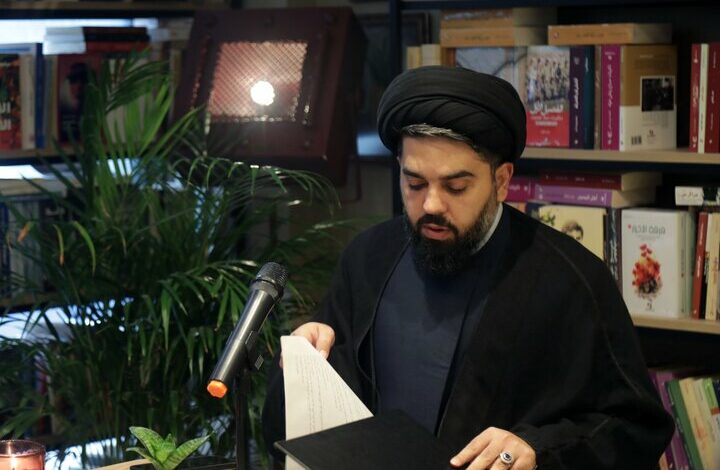National Book and Reading Day: Iranian Cultural Attaché Hosts Literary Seminar in Beirut

To mark National Book and Reading Day,the Cultural Attaché of the Islamic Republic of Iran in Lebanon organized a literary gathering named “Reading is a form of prayer” at the Café Library in Beirut.
The event was attended by Seyyed Mohammad Reza Mortazavi, Iran’s Cultural attaché to Lebanon; Dr. Mohammad Nasser al-Din, writer, poet, and university professor; and Dr. Ahmad Nezzal,head of the Lebanese writers Union. The session opened with remarks from Maryam Mirzadeh, researcher and translator. She addressed the central role books and libraries have played throughout human history. Mirzadeh highlighted how modernity has weakened this role by diminishing public interest in reading within societies increasingly driven by materialism and self-interest. She cited international authors such as Borges, Alberto Manguel, and Afonso Cruz whose works focus on books and libraries.
Following this introduction, Mortazavi delivered a speech emphasizing books’ importance in shaping awareness, understanding history over time, and transmitting knowledge across generations. He stressed that books inspire action where knowledge meets practice-citing ayatollah Seyyed Hassan Nasrallah Shaheed Aqdas as an exemplary figure who combined scholarship with activism while maintaining constant engagement with books throughout his life. Mortazavi added that books allow individuals to soar into different worlds and that time spent reading is invaluable.
Next, Dr. Ahmad Nezzal spoke about this cultural event and praised reviving National Book and Reading Day observances. He recounted historical attempts to erase Arab identity through burning libraries or destroying texts-from ancient Alexandria’s library destruction to targeted attacks on Palestinian libraries during recent conflicts.
Nezzal explained that from the outset of Israel’s war against Gaza, libraries were primary targets-not merely incidental casualties but deliberate objectives aimed at erasing culture. He underscored contemporary intellectuals’ role in promoting reading culture through cultural events that revive study habits and restore literature’s rightful place within society. Nezzal stated that today’s oppressors fear educated readers most as they know an informed populace wields cultural resistance alongside historical memory restoration efforts.
The session concluded with Dr. Mohammad Nasser al-Din reading his story “The 33-Day War & The Kitchen Cupboard,” which carries symbolic meanings about Israel’s ongoing war against Lebanon-from initial attack until today-and shares lessons drawn from those events. He described how his father’s library survived all Israeli military incursions intact despite repeated warfare around it.
The audience engaged actively after hearing the story; a warm literary discussion followed where Nasser al-Din’s narrative was critiqued alongside explorations into creative writing techniques grounded in wartime experiences.
Participants emphasized writing has become an urgent necessity for documenting oral history experiences and also honoring heroes’ memories across Lebanon.





